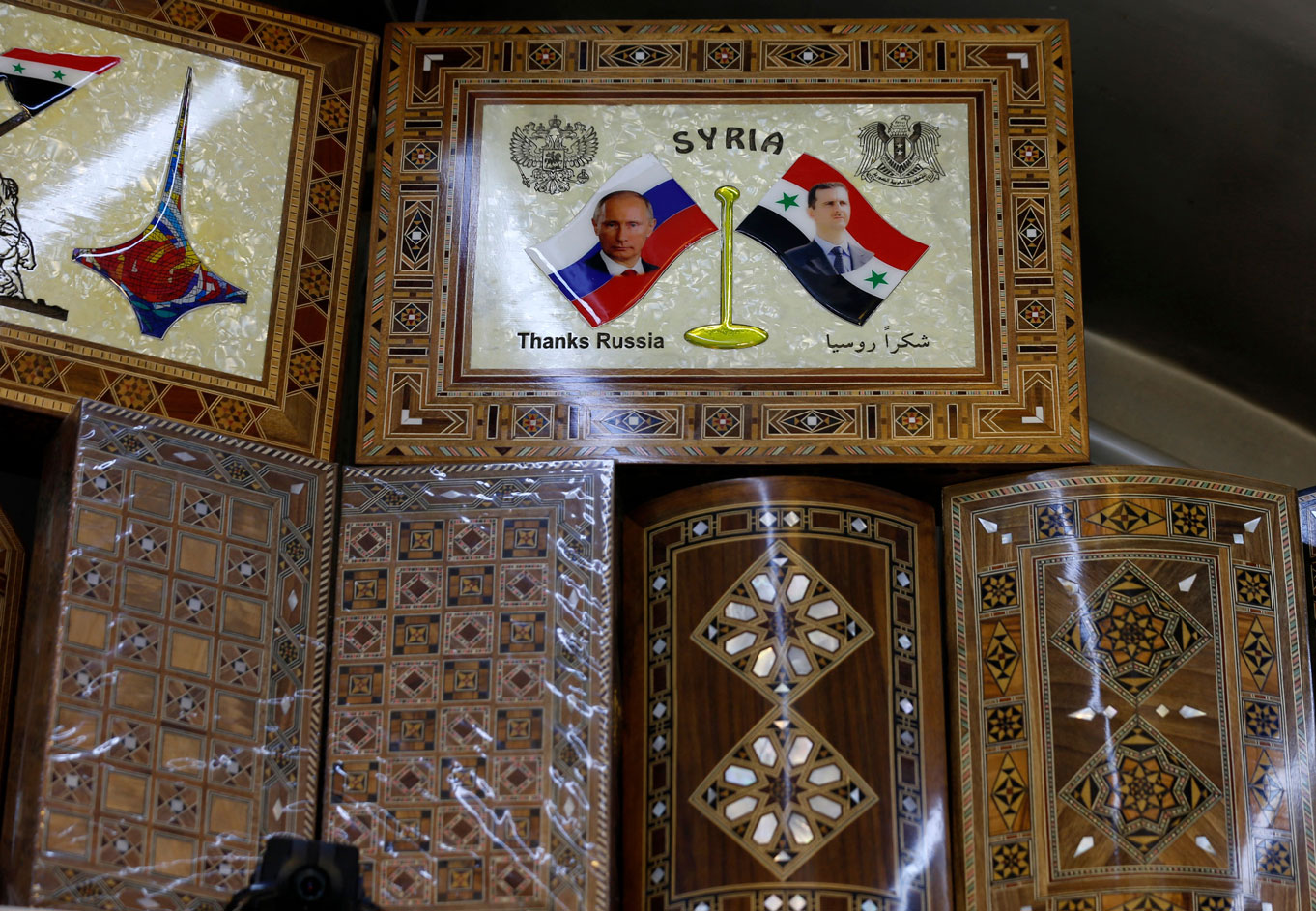Our Week in Review, a newsletter emailed to subscribers every Friday.
To subscribe, sign up here.
Dear readers,
Before we delve into this week’s newsletter, I have a favor to ask. New Lines has been nominated for a Webby Award! We would be very grateful if you took a moment to vote for us in the best homepage category here.
One of the most fascinating and deplorable subplots of the Syrian war (which entered its 12th year last month) has been the proclivity of the anti-imperialist left to justify Russia’s intervention in the war on the side of Bashar al-Assad and to excuse the myriad war crimes that Moscow engaged in or abetted, such as bombing hospitals and civilians, carrying out starvation sieges or protecting a regime that deployed chemical weapons on its own people.
The central tenet of the argument is a sovereigntist one — that the Syrian state invited and endorsed Russia’s intervention. But the part that the argument glosses over (besides the gross human rights violations) is that Russia itself acts as an imperial power in Syria, one whose relationship with its client is governed largely by the same rules as those that determined the relationship between empires and vassal states.
This has of course always been evident in the deliberate indignities that Russia subjected its protectorate to over the years, such as marketing its battle-tested weapons systems for potential client states that were used to kill Syrians all over the country, or whenever Vladimir Putin visited Syria to inspect his military holdings. One iconic video shows Putin walking alongside Assad before a military officer grabs the latter’s arm to hold him back so Russia’s autocrat can greet assembled military personnel.
An investigation that we published in New Lines this week adds further evidence to Russia’s predilection toward imperialism and exploitation. Written by Michael Weiss, our news director, the exclusive essay shows, based on leaked documents, how Moscow sought to evade sanctions through Syrian loan schemes in a manner meant to enrich some of Putin’s staunchest allies.
The two loans, totaling $1 billion to Syria, came with the condition that the money be used exclusively for payment to specific Russian companies during a six-month window. The companies in the agreement included those belonging to oligarchs Gennady Timchenko and Yevgeny Prigozhin, known as “Putin’s chef.” The two men have been sanctioned by the U.S. and EU for their role in facilitating the war in Ukraine. Prigozhin’s mercenary army, the Wagner Group, has also been implicated in gross human rights abuses and crimes against humanity in Syria, including the torture and mutilation of a Syrian army deserter.
Weiss quotes Col. Joel Rayburn, the former U.S. deputy envoy to Syria: “Russians long ago began treating Syria as a theater from which to extract revenues, not expend them. These unfavorable loans are entirely in keeping with that approach. The Russian Ministry of Defense adopts the same method, with Russian generals acquiring property and cash each time they rotate into Syria on assignment. And there’s nothing Assad can do about it — the military weakness of his regime makes him entirely dependent on Russian support.”
Sanctions, drought, war and economic crises have left Syria unable to procure basic foodstuffs and fuel, reduced to relying on imports from its chief allies, Iran and Russia. Among the most essential commodities under the loan agreement are wheat, gasoline and heating oil.
It is here that the true cravenness of Russia’s imperial ambitions comes into the limelight. Even as Syrians are brought to the brink of starvation, Russian wheat has not been delivered as promised or in a timely manner. The foodstuffs are subpar compared with international standards. And Moscow has repeatedly price-gouged its ally, forcing Syria to pay more for wheat and other essentials than the price on international markets. In April 2021, the Russian wheat company OZK offered wheat to Syria at $355 per ton, nearly $100 more than its price on the international market.
The evidence is clear: Russia, in its quest for global relevance, exploits if not outright colonizes the resources of war-torn nations where it has contributed to the destruction and whose citizens are starving to death.
What was anti-imperialism made for, if not to resist such obscenity?
From this week (April 4 – April 8, 2022)
In the Balkans, ‘Stability’ May Not Be the Answer | Read more
Podcast | The Politics of Storytelling — with Fatima Bhutto | Listen here
How Open-Source Data Got the Russia-Ukraine War Right | Read more
In the Liberated Kyiv Suburbs, Two Tales of War Emerge | Read more
Estonia Expels a Colorful Russian Diplomat | Read more
No Respite on Ukraine’s Bloody Southern Front | Read more
Exclusive: How Russia Evades Sanctions via Syrian Loan Schemes | Read more
Why the Taliban View Education as a Weapon | Read more
History Stokes Putin’s Dream of a ‘Greater Russia’ | Read more



